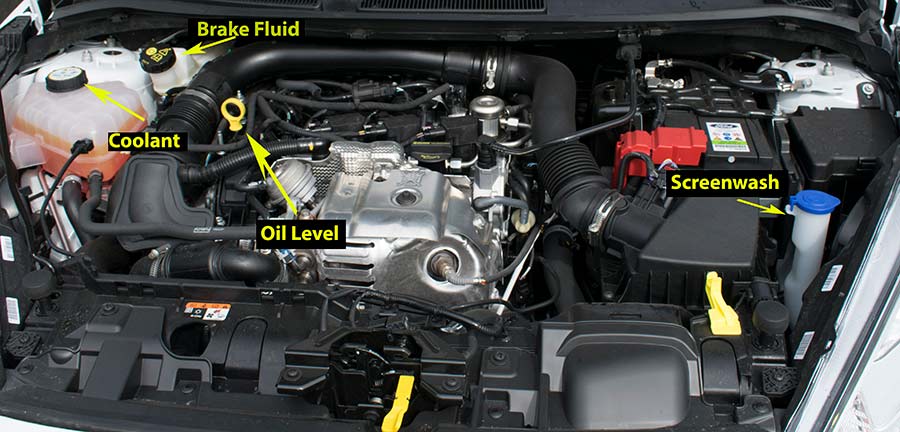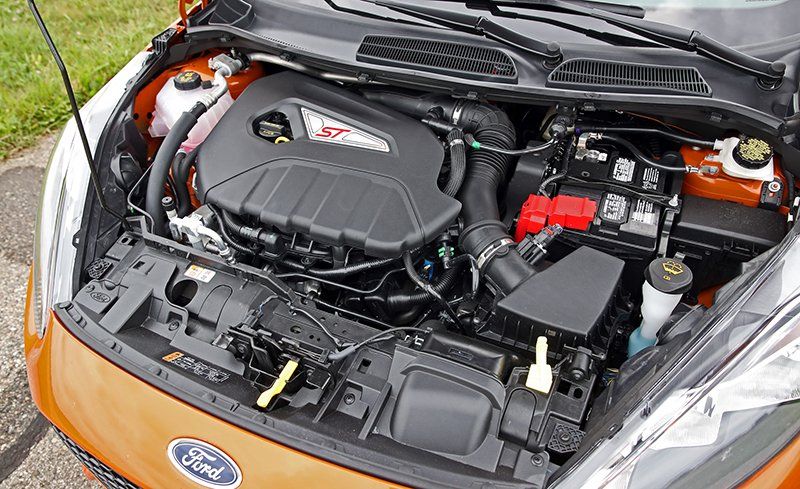Protect Your Investment with Proper Ford Fiesta Engine Maintenance
Protect Your Investment with Proper Ford Fiesta Engine Maintenance
Blog Article
The Future of Engines: Advancements Driving Sustainable Power Solutions
As the auto market navigates the important transition towards sustainability, the future of engines is increasingly specified by groundbreaking advancements. Electric engine developments, alongside appealing developments in hydrogen fuel cells and biofuels, are improving the landscape of power remedies.
Electric Engine Advancement
The evolution of electrical engine advancements indicates a pivotal change in the auto and aerospace industries, driven by the immediate need for sustainable alternatives to fossil fuels. This shift is identified by significant developments in battery innovation, power electronics, and electric motor style, which jointly enhance the performance and efficiency of electric engines.
Recent innovations have brought about the development of lighter, more energy-dense batteries, such as lithium-silicon and solid-state batteries, which assure longer varieties and shorter billing times. Additionally, renovations in electrical motor effectiveness, such as making use of long-term magnets and progressed cooling systems, allow electrical engines to operate properly under differing conditions. These improvements not just boost automobile performance but likewise add to a decrease in general power consumption.
In addition, the assimilation of sophisticated software application formulas has maximized energy monitoring in electric automobiles, permitting for regenerative braking and predictive charging strategies. As makers significantly embrace electrical propulsion, the auto and aerospace sectors are experiencing a paradigm change towards greener innovations. This advancement not only satisfies governing needs yet also straightens with customer choices for eco-friendly transportation options, strengthening electric engines as a foundation of future lasting movement.
Improvements in Biofuels
As the automotive and aerospace industries significantly prioritize lasting energy sources, improvements in biofuels become a complementary solution to electrical engines. Biofuels, originated from natural materials such as plants, waste, and algae, offer an innovative opportunity for lowering greenhouse gas exhausts and reliance on nonrenewable fuel sources.
Recent research has focused on boosting the effectiveness and sustainability of biofuel production. Second-generation biofuels utilize non-food feedstocks, reducing competitors with food supply and lowering ecological influence. In addition, developments in artificial biology have allowed the engineering of microbes to produce biofuels extra effectively, causing greater returns and reduced production prices.
In addition, the growth of drop-in biofuels enables smooth integration right into existing framework, enabling a smoother transition for sectors generally based on fossil gas. ford fiesta engine. These gas can be utilized in present engines without modifications, facilitating their adoption across numerous markets
Investments in biofuel innovation, together with helpful plans, are important to drive development and scalability. As the global neighborhood looks for to battle climate adjustment, biofuels provide a practical, immediate option that aligns with the overarching objective of sustainability in transportation and air travel.
Hydrogen Fuel Cell Modern Technology
A growing number of scientists and companies are checking out hydrogen gas cell innovation as a viable option to standard power sources in transport and power systems. This innovation transforms chemical power from hydrogen into electrical energy with an electrochemical reaction, with water as the only by-product, making it an eco pleasant alternative.
The core of hydrogen gas cells is the fuel cell stack, where hydrogen molecules are split into protons and electrons. The flow of electrons creates electrical power, while protons relocate with a visit site membrane to integrate with oxygen from the air, creating water. This process results in high performance and low emissions, placing hydrogen gas cells as an essential player in the shift to lasting power.
Substantial advancements have actually been made in improving the toughness and efficiency of fuel cells, alongside decreasing expenses through innovative manufacturing strategies. The advancement of hydrogen manufacturing approaches, such as electrolysis powered by sustainable energy resources, enhances the sustainability of the overall system. As facilities for hydrogen refueling expands and manufacturing approaches become much more effective, hydrogen fuel cell innovation holds great guarantee for decarbonizing various industries, consisting of heavy-duty transportation and fixed power generation.
Hybrid Systems and Their Impact
Crossbreed systems represent a substantial development in lasting engine modern technology, merging conventional interior burning engines with electric propulsion to optimize power performance and minimize emissions (ford fiesta engine). This double approach allows vehicles to make use of both power sources, allowing greater flexibility in energy consumption and decreasing dependence on nonrenewable fuel sources

In enhancement to environmental advantages, hybrid systems supply consumers a her comment is here sensible shift in the direction of fully electric vehicles. They minimize array anxiousness by incorporating the ease of gas with the advantages of electrical propulsion, making them an appealing choice for a larger audience.
The Function of AI in Engine Style
Leveraging sophisticated formulas and artificial intelligence methods, the automotive sector is significantly integrating artificial knowledge (AI) into engine style processes. AI enhances the effectiveness and efficiency of layout by evaluating substantial datasets to determine optimum configurations and performance criteria. This capacity allows designers to replicate numerous operating conditions and forecast engine actions under multiple circumstances, considerably lowering the time and price connected with traditional prototyping approaches.
Additionally, AI helps with the advancement of advanced materials and combustion processes customized for sustainability. By optimizing fuel performance and lessening discharges, AI-driven styles line up with global initiatives targeted at decreasing the carbon impact of auto engines. Maker knowing algorithms can likewise forecast maintenance demands, causing improved reliability and longevity of engine elements.
Moreover, AI contributes in the assimilation of electrification innovations, such as crossbreed systems, where it can maximize battery management and energy healing procedures. As the sector relocates in the direction of even more sustainable power services, the duty of AI in engine layout comes to be increasingly crucial, driving development and enhancing the performance more tips here of future engines. Ultimately, the cooperation in between AI and engine design advertises a brand-new era of smarter, cleaner, and extra effective vehicle technologies.

Conclusion
In final thought, the future of engines is being shaped by a convergence of cutting-edge technologies that focus on sustainability. Electric engine innovations, biofuel advancements, hydrogen fuel cells, and hybrid systems jointly contribute to a significant decrease in discharges and environmental impact.
Electric engine improvements, together with promising growths in hydrogen fuel cells and biofuels, are improving the landscape of power remedies. Furthermore, renovations in electric motor performance, such as the use of irreversible magnets and progressed cooling systems, make it possible for electric engines to operate successfully under differing problems. By maximizing fuel efficiency and lessening emissions, AI-driven layouts align with worldwide initiatives intended at decreasing the carbon impact of automobile engines. As the market relocates in the direction of even more sustainable power services, the duty of AI in engine layout becomes increasingly crucial, driving development and enhancing the performance of future engines. Electric engine improvements, biofuel growths, hydrogen fuel cells, and crossbreed systems jointly contribute to a substantial reduction in discharges and environmental influence.
Report this page